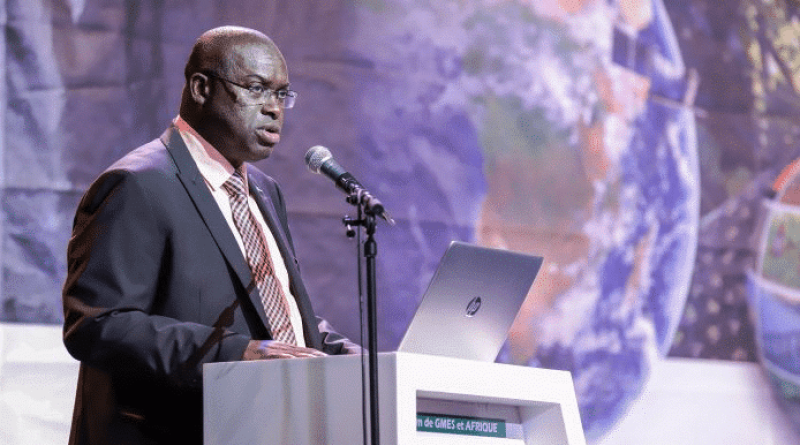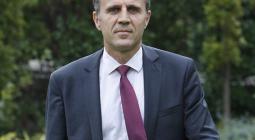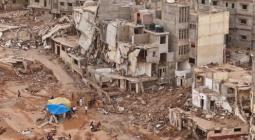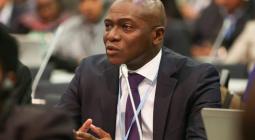Tidiane Ouattara: “The use of space in Africa is essential”

Kenya, South Africa, Egypt, Algeria, Nigeria, Morocco, Ethiopia... these African countries have put several satellites into Earth orbit in recent years. For Tidiane Ouattara, the space sector is set to develop further on the continent over the next few years. In this interview, conducted on the fringes of the first GMES & Africa Phase 2 Forum, the space science expert at the African Union Commission (AUC) discusses the objectives of the Global Monitoring for Environment and Security and Africa (GMES & Africa) programme, which he coordinates. This program is particularly focused on enhancing Africa's response to the climate crisis.
AFRIK 21: What are the objectives of the GMES & Africa programme? How does it contribute to environmental management and security in Africa?
Tidiane Ouattara: GMES & Africa is a multi-year programme based on the long-term strategy between Africa and Europe, within the framework of Agenda 2063, which is the compass of the African Union (AU). On the basis of this strategy for cooperation between the two continents, in the “science, technology and innovation” section, Africa asked for Europe’s support in the field of space science and technology.
The aim was to work on the environment, boost the economy and strengthen African capacities. As part of the programme, the European Space Agency’s (ESA) Copernicus satellite is being used to map natural resources, water, and coastal and marine areas. The idea is for African experts to be able to draw on space science and technology to manage natural resources, in particular land use, marine resources and floods.
Capacity building involves human resources and, above all, data reception infrastructure on the continent.
In practical terms, how is the GMES & Africa programme helping a country like Kenya to cope with the drought?
Our role is not to implement projects on the ground. That task falls to the national and sub-regional institutions with which we work. This is the case of the Climate Prediction and Applications Centre of the Intergovernmental Authority on Development (IGAD), of which Kenya is a member. On the issue of drought, this centre looks after several other countries in East Africa. Thanks to the GMES & Africa programme, the centre has produced much finer maps, with updated data, focusing in particular on the land use map. Degraded and wetlands have also been mapped. So we’re supporting them with reliable information, on both a large and small scale.
As a specialist in remote sensing, how do you see the usefulness of the programme for the development of the economy and the private sector?
Africa is a huge continent (30 million km2) with a growing population of 1.3 billion and enormous natural resources. It’s extremely difficult to manage all this using traditional methods. Space gives us the opportunity to manage our resources more effectively, because it provides information that can be repeated in a very short space of time, on both a large and small scale. In concrete terms, you can have information on the village just as you can on the scale of a country from a single satellite.
So, for me, the use of space in Africa is essential. We want to take advantage of space science to build the capacity of young people and decision-makers to develop scenarios before making decisions. For example, thanks to space, we can make 30-year drought forecasts.
In economic terms, space increases productivity. For example, the GMS consortium in Ghana has developed a service that uses mobile phones to improve fishing on the Ghanaian coast. This system also affects fishing methods by identifying fishing zones. This results in energy savings.
What role did you play in the adoption of the space policy and the creation of the African Space Agency (AFSA)?
I arrived after the AU adopted its space policy. I was therefore responsible for implementing the policy in three areas: creating governance, setting up action programmes, and promoting and raising awareness of the space issue.
So it was thanks to the governance aspect that we were able to set up the AFSA. On the programmatic side, we are responsible for implementing the GMES & Africa programme with the support of the private sector.
In this context, we have already installed 12 satellite data reception stations in 11 countries, most of which are in North Africa, since sub-Saharan Africa was already more or less supplied. With our partners, the European Space Agency (ESA), the Joint Research Centre (JRC) and the European Commission, we are working in synergy with the Africans as part of the implementation of GMES & Africa.
At this stage of the programme, what assessment can you make?
Thanks to GMES & Africa, we have been able to demonstrate the usefulness of space in a concrete way to all the AU member countries. In addition, at least 10,000 young people have been trained across the continent, with the help of 120 institutions from 45. Otherwise, what we at the AU consider to be the greatest political achievement in response to Agenda 2063 is the mobilisation, for the first time, of these institutions to work together on a continental programme. We have also launched the Women in GMES initiative to enable women to play a full part in everything to do with space in Africa.
The first GMES & Africa Phase 2 forum will be held from 27 to 30 November 2023 in Sharm El Sheikh, Egypt. What are your objectives in organising this forum?
The forum is organised twice during the GMES & Africa programme, in the middle and at the end of each phase (4 years). It’s a platform that we’re giving to all the stakeholders, especially the service users, to reflect on the future of the programme. The event also welcomes decision-makers and players from the private sector. For example, there are high-level panels with professionals from several sectors, to share their visions of space in Africa.
There will also be consortia sharing their achievements and the challenges they face. This forum is a networking platform that aims to mobilise ideas. It’s a way for us to invite Africans to consider that they belong to a single continent so that they can deliver on its challenges.
What is your role in the Digital Earth Africa initiative and its importance for the African continent?
It’s an Australian initiative supported by Amazon, aimed at bringing together the data available on the African continent and putting it on a database. As in Australia, the aim is to facilitate access to this data. In this context, the African Union has been asked to join the Board of Directors, on which I sit. The GMES & Africa programme alone will not address the concerns of Africans about data generated through space. Digital Earth Africa is hosted by the South African National Space Agency (SANSA), with satellite offices in Nairobi, Kenya, and soon in Accra, Ghana.
Apart from Australia, are you in contact with other major space powers? Is the African private sector already taking an interest in the issue, as is the case in the United States with billionaire Elon Musk, who has invested heavily in the sector in recent years?
By its very nature, no one can go into space alone, because it’s a vast and complex field, with so many issues at stake. Africa, which has only recently entered the space sector, cannot repeat the same mistakes it has made in other fields in the past. We need to be inspired by the success stories of others. As you know, Africa is open to everyone, but it is up to Africa alone to determine its needs.
In this context, it is essential to develop local capacities. The contribution of private investors will be decisive in achieving our objectives. In Africa, the private sector is just emerging in the space sector. It will need to be structured, and ecosystems will need to be put in place to encourage the growth of these companies.
As a space expert, what should be the priorities of African countries in this area?
Countries are sovereign. Cameroon, for example, is in the process of launching its own space agency. Our role is to advise countries. So it’s difficult to talk about priorities, because space is a cross-cutting issue that must address the concerns of each country. However, this priority must be included in the African Union’s Agency 2063.
Speaking of Cameroon, a few months ago the Ministry of Posts and Telecommunications announced its intention to put a satellite into orbit. This provoked strong reactions on social networks. Cameroonians are urging the government to focus first on essential services, notably water and electricity. Do you understand this criticism?
There was the same outcry in Ivory Coast when the Ministry of Higher Education and Scientific Research announced the creation of a special national agency 2 years ago.
I think we need to educate ourselves. Before making such an announcement, we need to take the time to prepare our various audiences. Because interaction on social networks is now possible thanks to space science. The high cost of telecommunications is partly linked to satellite leasing. So if your country has a telecommunications satellite, there is bound to be an impact on the final cost. People are less surprised if they are prepared.
Interview by Delphine Chêne and Jean Marie Takouleu






